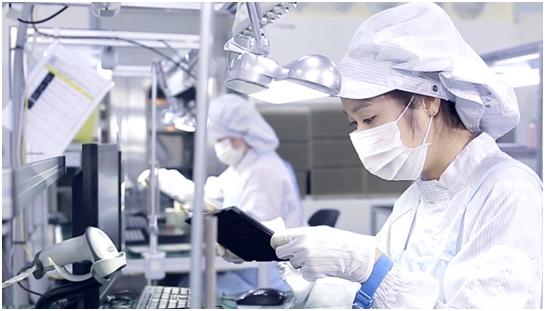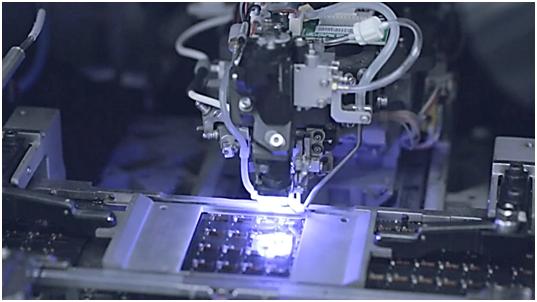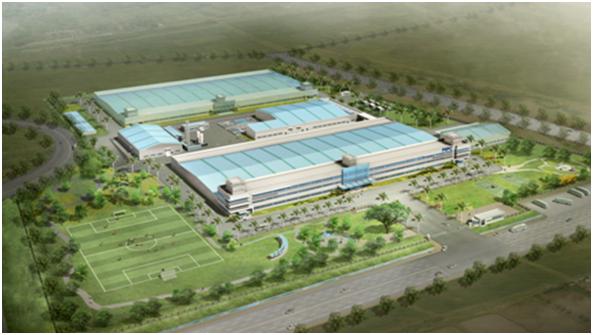PSPC’s smart manufacturing model: Leading the IT revolution

PSPC falls under the outsourced semiconductor assembly and test (OSAT) industry, which remains highly lucrative given the trends of global electronic growth projected to be as much as 4.1% in 2014.
MANILA, Philippines — In an age where faster, greener, smaller, and smarter are what define the winners in businesses, industries have looked for means by which to gain the competitive advantage. Technology has greatly changed the way we live and it has certainly changed the way we do business. Machines are now responsible for most of the heavy lifting and complex jobs as their edge provides a more seamless and faster way of producing and manufacturing goods.
When it comes to advanced manufacturing techniques, an industry that is at the forefront of such innovation would be the semiconductor industry. Semiconductor chips are at the essential core of mobile telephones, computers, flat-screen monitors and television sets, a wide range of medical machinery, and play an enormous role in today’s sophisticated cars and aircraft.
Much of the tremendous growth seen in the electronics industry over the last three decades has been driven by the increasing power of semiconductors. Demand forecasting in consumer electronics is very difficult; despite this, the common denominator is demand for faster and smaller technologies with enhanced connectivity, and efficiencies.
Such trends can only necessitate smarter manufacturing; a model that marries information, technology and human ingenuity to bring about a rapid revolution in the development and application of manufacturing intelligence to every aspect of business.
One such example of a company employing such advanced technologies is Phoenix Semiconductor Philippines Corporation (PSPC). PSPC is a Korean Semiconductor company with a manufacturing and assembly plant based in Clark Freeport Zone in Pampanga. Having entered the country in 2010, the company has been leading to the progress of technological advancement thanks to its close ties with Samsung.
Being one of the suppliers the South Korean conglomerate relies on for much needed chips, it is evident in today’s surge of growing consumer products and more powerful devices that semiconductor chips play an integral role it its development.
PSPC makes use of advanced servers which are programmed with the ‘recipe’ to ensure that production remains consistent and continuous, with products such as Board on Chip (BOC), micro SD cards, and even modules such as the Unbuffered Dual–In Line Memory Module (UDIMM), Small Outline Dual In-Line Memory Module (SODIMM), and Registered Dual In-Line Memory Module (RDIMM), all of which appear in a plethora of consumer gadgets and devices. Much of these chips make their way to numerous consumer electronics such as: smartphones, PDA’s MP3 Players, Desktop and notebook PC’s tablets, cameras and even servers.
Move to smarter manufacturing: the opportunities, benefits and challenges

Electronic innovation in most-part is driven by the semiconductors that fuel them. Developing the chips for the world’s next-generation devices is at the heart of PSPC’s business.
Investments in a smart manufacturing infrastructure are essential to securing a business’ future and economic stability. “Smart manufacturing will help to increase the flexibility of our plants, lower the cost of products and improve environmental sustainability. It will enable us to development of innovative new products using next-generation materials,” said Mr. Dong Joo Kim, Chief Finance Officer for PSPC.
Profound transformation is inevitable within this decade with the way goods are manufactured: “Our processes and model of smart manufacturing will interconnect and better harmonize individual stages of manufacturing production to advance plant-wide efficiency,” said Mr. Kim.
A typical manufacturing plant uses information technology, sensors, intelligent motors, computerized controls, production management software and the like to manage each specific stage or operation of a manufacturing process. However, each is a separate entity ensuring efficiency, according to the CFO.
Smart manufacturing works towards integration and enables data sharing throughout an organization. When done successfully, the convergence between machine-gathered data and human intelligence will advance plant-wide optimization and enterprise-wide management objectives, including substantial increases in economic performance.
Smarter manufacturing would however require more highly skilled personnel in order to maintain and operate the machines. “More engineers and technicians would be needed and a demand for such skilled labor and expertise may aid in generating job opportunities for more and more Filipinos,” added Mr. Kim.
In addition to skilled personnel, Mr. Kim discusses the financial and capital cost of smarter manufacturing: “The most notable being capital investments needed to purchase the much needed equipment and machinery. To be able to produce in scale and speed requires a fairly large investment which might take years before revenues are possible. But the rewards are promising” he stated.
The future of the industry

Located in Clark, Freeport Zone, Pampanga, the Company boasts of being one of the largest exporters from Clark according to the Clark Development Corporation and PSPC is aggressive to expand operations to cater to a growing and evolving market. Pictured above is a rendering of what the company hopes to achieve with its expansion plan, a second facility (background) geared towards the production of memory semiconductors including semiconductors for high-end mobile phones.
Moving from plant-wide optimization to manufacturing intelligence where connecting data technologies with high performance computing platforms will make it possible to build significantly higher levels of manufacturing intelligence and connect it throughout the factory.
“Product innovations can and will also arise from the creative use of smart manufacturing intelligence gathered from every point of the supply chain, when this new model is deployed in-full,” shared Mr. Kim. It seems therefore that competitiveness and innovation are invariably inter-linked with the advancements that can be made in this new manufacturing model, and smart manufacturing is clearly no longer a privilege than it is a need, for any country to gain and retain competitive leadership.
As the Philippine economy continues to grow, there must be a drive to improve and empower the industrial sector of the economy. From an economic perspective, this would yield more goods to export and produce, more jobs to employ and serve to balance the vastly service-oriented industry by providing a stable backbone for the economy. There is much opportunity in the Philippines. With more and more developments and openness to investors, one can hope that the reality of a few advanced companies may soon be the norm for most of our industries.
Since the start of operations, PSPC has consistently maintained profitability, and has reported combined assets valued at $189.19 million as of Dec. 31, 2013. The company operates in Clark Freeport zone, Pampanga and has been hailed as one of the top exporters in the country by the Clark Development Corporation. advt